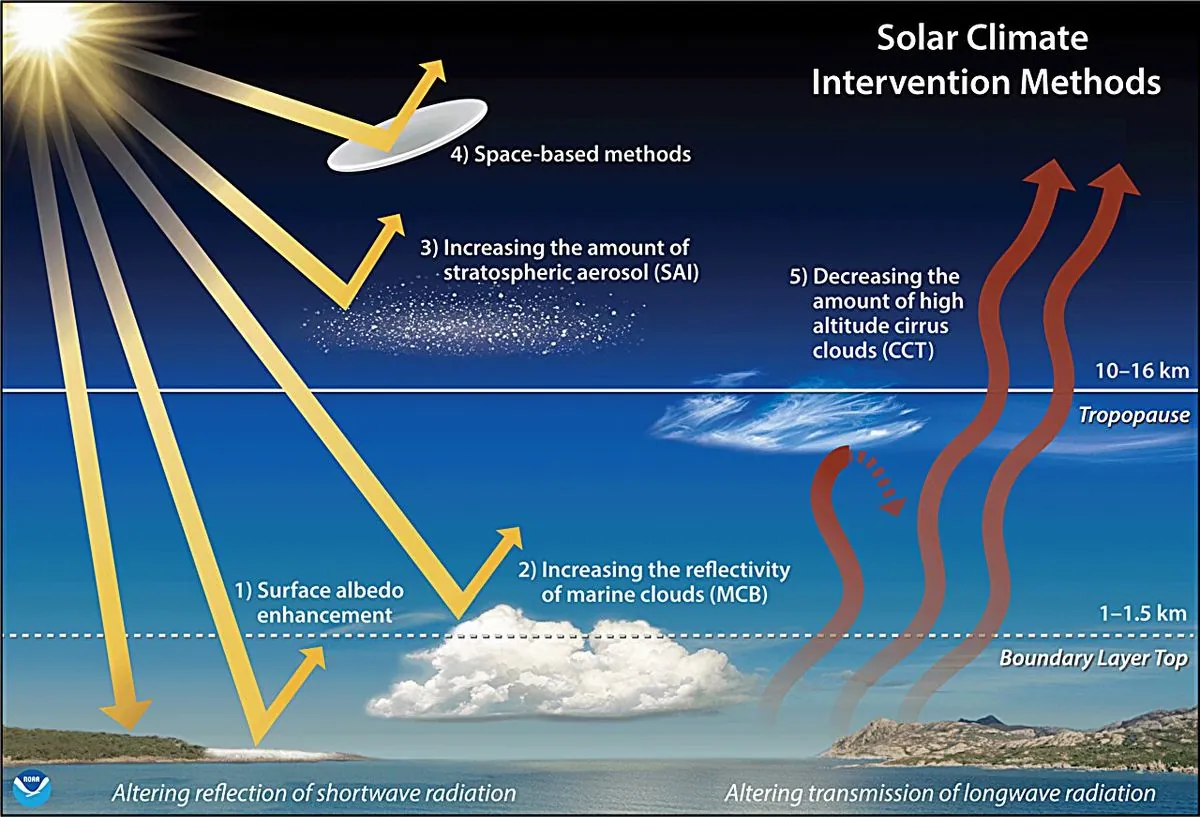UK Government Funds Controversial Solar Geoengineering Research
British agency Aria is backing field trials to explore cooling Earth's temperature, sparking debate among scientists. The initiative aims to research potential climate change solutions amid growing environmental concerns.

In a move reminiscent of a classic Simpsons episode, the British government is venturing into the realm of solar geoengineering research. Unlike the fictional Montgomery Burns' nefarious plot to block out the sun, however, this initiative aims to explore potential solutions to the pressing issue of climate change.
The Advanced Research and Invention Agency (Aria), a UK innovation lab with £800 million in funding, is preparing to support field trials investigating methods to cool the Earth's temperature. This controversial decision has ignited a debate within the scientific community about the ethics and potential risks of manipulating the planet's atmosphere.
Aria's "programme thesis," developed by Professor Mark Symes of Glasgow University, calls for proposals to explore options for actively cooling the Earth. The agency acknowledges the debate surrounding such interventions, framing it as a "risk vs risk" scenario where society must consider whether to "buy time" by manipulating certain variables to reduce global temperatures in the short to medium term.
Critics argue that pursuing geoengineering technologies could divert resources from crucial carbon emission reduction efforts and create false hope for a technological solution to the climate crisis. There are also concerns about the potential for unforeseen consequences and the geopolitical implications of controlling the Earth's temperature.

Proposed methods for solar geoengineering include:
- Releasing reflective particles into the upper atmosphere
- Thinning high-altitude clouds
- Marine cloud brightening using saltwater
- Ice sheet thickening in the Arctic
- Space-based reflectors to deflect sunlight
Previous attempts at geoengineering experiments have faced significant opposition. In 2022, a US start-up called Make Sunsets released two weather balloons carrying aerosol particles off the coast of Mexico, prompting the country to ban future solar geoengineering experiments. Similarly, Harvard University's Stratospheric Controlled Perturbation Experiment was shut down earlier this year following protests from indigenous Sámi people in Sweden.
Despite these setbacks, the concept of geoengineering has gained support from prominent figures in the tech industry, including Bill Gates, Dustin Moscowitz, and George Soros.
"Small-scale research will not tell us what we need to know, but it will be a slippery slope to technology development."
Lili Fuhr, director of the fossil economy programme at the Centre for International Environmental Law, warns, "No one should control the global thermostat; the risks are too great, with the potential to disrupt weather patterns and harm billions."
Aria's team, led by CEO Ilan Gur, insists that their work will be conducted transparently and that the proposed field trials will be small-scale, controlled, and geographically confined. The effects of these trials are expected to dissipate naturally within hours or have a reliable mechanism for termination.
As the debate continues, it's worth noting that the concept of solar geoengineering is not new. Soviet scientist Mikhail Budyko first proposed the idea in 1965, and the term "geoengineering" was coined in the 1970s by Italian physicist Cesare Marchetti. The 1991 eruption of Mount Pinatubo demonstrated the potential for global cooling through atmospheric particulates, causing a temperature decrease of about 0.5°C for a year.
With the world struggling to limit global warming to 2°C, as agreed in the 2015 Paris Agreement, the exploration of geoengineering technologies may become increasingly relevant. However, as Aria moves forward with its research, the scientific community and policymakers must carefully weigh the potential benefits against the risks and ethical concerns associated with manipulating the Earth's climate system.


































